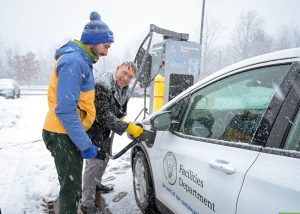UTICA, N.Y. — Mohawk Valley Health System (MVHS) is no longer mandating a COVID-19 vaccine for employees, becoming the second health system in the region to drop the requirement.
Rome Health also announced it would no longer mandate the vaccine.
The moves come in the wake of an announcement from the New York State Department of Health that it intended to repeal the vaccine mandate for healthcare workers. While it awaits final approval of that move from the state’s Public Health and Planning Council, the health department stated it would not enforce the mandate. Health and Human Services and the Department of Homeland Security are starting the process at the federal level to end the vaccination requirement.
(Sponsored)

How Are You Creating Certainty in an Uncertain World?
In a world of constant change, having a local partner in your corner can make all the difference. When Central NY businesses are asked “Who’s in your corner?” one name

CECL Accounting Standard: What You Need to Know
The Financial Accounting Standards Board Accounting Standards Codification (FASB ASC) 326, Financial Instruments-Credit Losses, became effective for all entities on January 1, 2023. This accounting standard introduces the current expected
MVHS changed its policy and no longer requires the vaccine as a condition of employment as of June 2.
“We are hopeful that those who left our organization because of the vaccine mandate may consider coming back to MVHS,” President/CEO Darlene Stromstad said in a press release. “And we’re hopeful this change will also help in our recruitment efforts for much-needed employees.”
COVID testing
MVHS also announced that beginning June 19 it will no longer require pre-procedure/surgery COVID testing as a result of the steep decline in cases in the community and among its patient population. MVHS will conduct the last pre-procedure tests on June 14. Testing for inpatients will also stop as of June 14.
In one last change, MVHS will now permit a companion to accompany patients into the ambulatory surgery unit. Discrete entrances for surgical patients will continue at each campus and safety associates will continue to greet and escort patients into the surgical area.
“As always, our first priority is keeping our patients as the focus of all we do,” Stromstad said. “I am really delighted that our patients can now have a loved one with them when they are going for a procedure or surgery. It feels good to be able to bring back practices that further comfort our patients during stressful times.”




